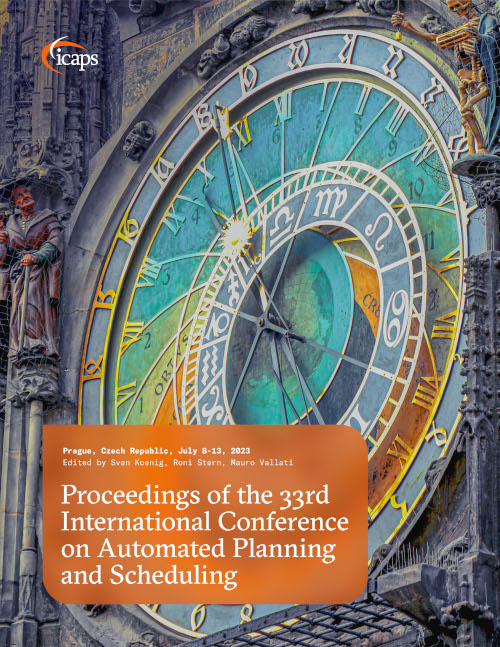Timed Partial Order Inference Algorithm
DOI:
https://doi.org/10.1609/icaps.v33i1.27246Keywords:
Temporal Domain Learning, Representation Learning, Formal VerificationAbstract
In this work, we propose the model of timed partial orders (TPOs) for specifying workflow schedules, especially for modeling manufacturing processes. TPOs integrate partial orders over events in a workflow, specifying ``happens-before'' relations, with timing constraints specified using guards and resets on clocks -- an idea borrowed from timed-automata specifications. TPOs naturally allow us to capture event ordering, along with a restricted but useful class of timing relationships. Next, we consider the problem of mining TPO schedules from workflow logs, which include events along with their time stamps. We demonstrate a relationship between formulating TPOs and the graph-coloring problem, and present an algorithm for learning TPOs with correctness guarantees. We demonstrate our approach on synthetic datasets, including two datasets inspired by real-life applications of aircraft turnaround and gameplay videos of the Overcooked computer game. Our TPO mining algorithm can infer TPOs involving hundreds of events from thousands of data-points within a few seconds. We show that the resulting TPOs provide useful insights into the dependencies and timing constraints for workflows.Downloads
Published
2023-07-01
How to Cite
Watanabe, K., Fainekos, G., Hoxha, B., Lahijanian, M., Prokhorov, D., Sankaranarayanan, S., & Yamaguchi, T. (2023). Timed Partial Order Inference Algorithm. Proceedings of the International Conference on Automated Planning and Scheduling, 33(1), 639-647. https://doi.org/10.1609/icaps.v33i1.27246
Issue
Section
Planning and Learning Track

